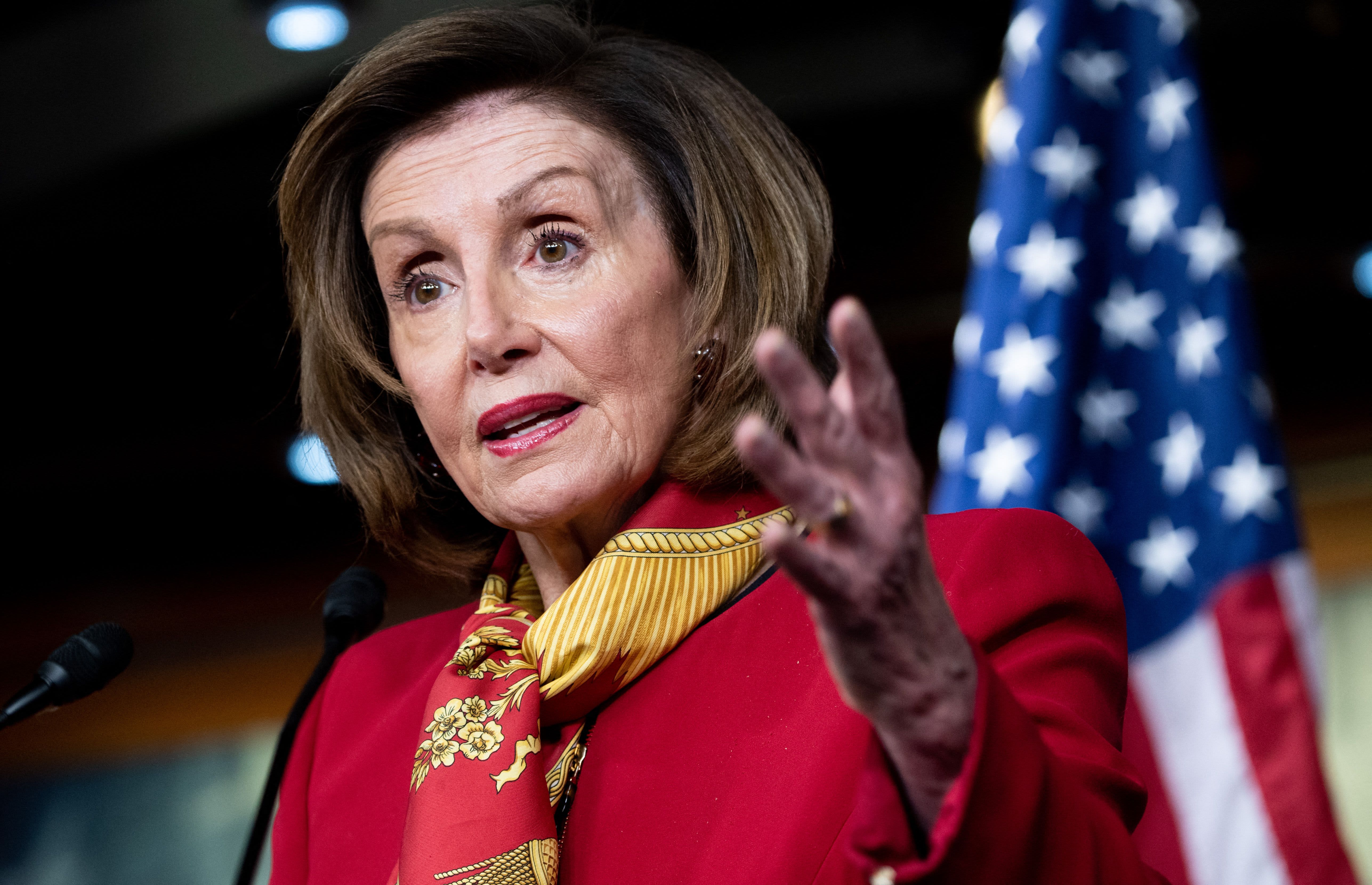
US Speaker of the House Nancy Pelosi, Democrat of California, speaks during her weekly press conference on Capitol Hill in Washington, DC, February 9, 2022.
Saul Loeb | AFP | Getty Images
WASHINGTON — House Speaker Nancy Pelosi and Democratic leaders have greenlighted a plan to craft legislation that would prohibit members of Congress from trading stock, after months of resistance to a ban by Pelosi, CNBC confirmed Wednesday.
At Pelosi’s direction, the House Administration Committee is working on drafting the rules, and the legislation is expected to be put up for a vote this year, likely before the November midterm elections.
In the Senate, several versions of a stock trading ban are under consideration, including one co-authored by progressive Democratic Sen. Elizabeth Warren of Massachusetts and Montana Republican Sen. Steve Daines.
“When you’re elected, you’re here to serve the people, not the elite, and [a stock trading ban] I think is a step forward, an important step forward, to restore the faith and trust of the American people in this institution,” Daines told CNBC on Wednesday.
Many questions remain about what types of investments would be prohibited, what incoming members would be required to do to comply with a new law, and whether family members of lawmakers would also be banned from trading stocks.
Nevertheless, Pelosi’s support for a stock trading ban in the House, first reported by Punchbowl News, represents an about-face for the speaker, and comes after years of congressional leaders on both sides of the aisle rejecting the idea of limiting what investments members of Congress can hold.
In the past, opponents of a ban on stock trading in Congress have claimed it would hamper efforts to recruit the best candidates to run for office. Meanwhile, many of their own families have grown wealthy by investing in the stock market, including Pelosi’s.
Yet in recent months, Pelosi and her top lieutenants have come under growing pressure from rank-and-file members to take action and pass a stock trading ban.
These increasingly noisy calls for a ban have been spurred in part by growing public support for a prohibition on lawmakers trading stocks.
A recent survey commissioned by a conservative advocacy group found that 76% of voters believed that lawmakers and their spouses had an “unfair advantage” in the stock market. The same survey, conducted by the Convention of States Action, also found that just 5% of likely voters approved of members of Congress trading stocks.
They also reflect the impact of new revelations about how widespread violations are of the current law, the 2012 STOCK Act, which was designed to prevent insider trading and conflicts of interest in Congress.
Last year alone, 54 members violated the STOCK Act rules, according to an analysis by Business Insider published earlier this year.
An unfair advantage
The question at the heart of the stock trading issue is whether or not members of Congress have an unfair advantage in the stock market because they are privy to information on a daily basis that is not available to the public.
Examples of this kind of information include classified briefings about national security issues, advance knowledge of regulatory actions, and nonpublic details about legislation, appropriations and tax policy. Any one of these could create a conflict of interest for a lawmaker who owned and traded shares in a company that would be impacted by this information.
“The intent here is to ensure that members and their spouses are not trading or holding individual stocks and bonds and so forth,” Daines said Wednesday. “Listen, you put your assets in a blind trust, you’re still aware of what assets were put in that blind trust. That’s just the reality of it, and we’re trying to reduce the conflicts of interest here.”
But as stock trading legislation takes shape in both the House and Senate, members will need to find compromise between a wide range of proposals.
Details open to debate
Several of the bills proposed so far would require incoming members of Congress to place their stock portfolios in a traditional blind trust, where it would be managed by an independent trustee who could buy and sell the stocks without the member’s knowledge.
But the bill that Daines and Warren plan to introduce goes significantly further, and prohibits members from even owning stocks. That means newly elected members of Congress would be required to actually sell their stock holdings, regardless of whether or not such a sale would be financially advantageous.
Other stock trading ban proposal bills differ on key issues like whether they would apply to members’ spouses and children, and what kinds of investments would be allowed.
Yet another question up for debate is how violations of any stock trading ban would be handled. Penalties could range from relatively soft ones like a written warning to serious punishments, such as massive fines or a loss of committee assignments.
There is also likely to be resistance from members who feel that a stock trading ban denies them a right to participate in free markets, and effectively punishes them for their decision to enter public service.
This was the sentiment behind Pelosi’s now infamous response last December to a reporter’s question about whether she would support a stock trading ban for members of Congress.
“We are a free market economy. They should be able to participate in that,” she replied.
But that response quickly backfired, especially given that Pelosi’s husband, Paul Pelosi, is a venture capital investor who holds tens of millions of dollars worth of stock. Speaker Pelosi has long insisted that she does not own any stocks herself.




